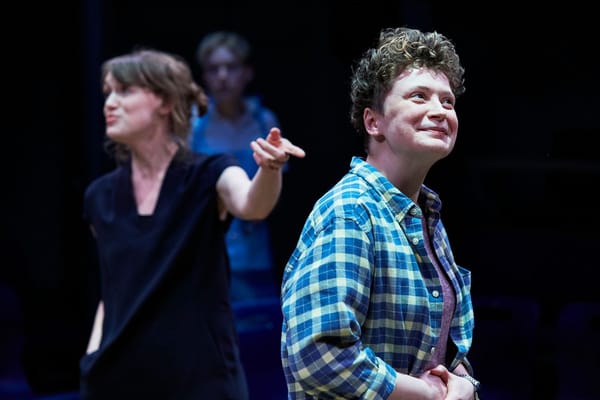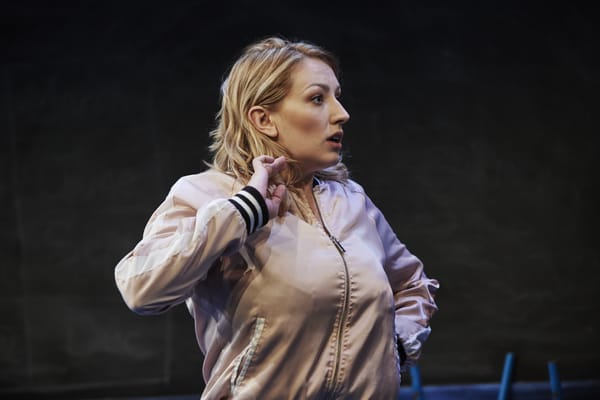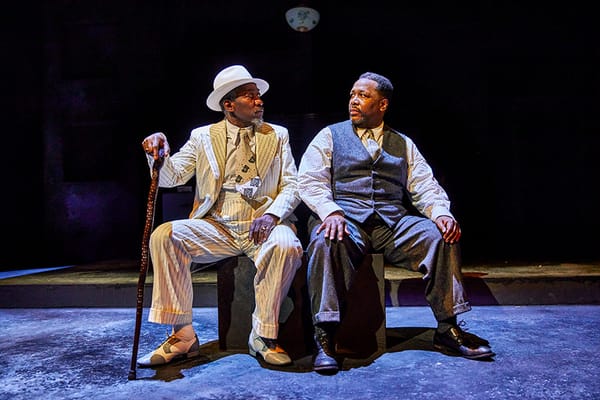Avalanche: A Love Story
Maxine Peake commands the stage in a one woman play about IVF.

Hope springs eternal; that is both a blessing and curse for Julie Leigh’s protagonist, the Woman (Maxine Peake), in Avalanche: A Love Story. We meet Peake’s nameless character at a psychic’s gathering, which is really something of a supernaturally tinged group therapy session. Everyone there is seeking to let go of a loved one; the Woman is too, only her loved one, a longed for child, has never existed.
Peake commands the vast Barbican stage masterfully as she unspools a winding, tragic tale of loves lost and found. Based on Leigh’s bestselling memoirs, the story is of a woman in her late thirties who has found moderate professional success and is on the cusp of greater acclaim living a lonely existence in New York. By chance she meets her high-school sweetheart; they rekindle their past affair with lustful passion, pledge to be together always and return home to Sydney to marry and raise a family.
The optimism of the couple’s early reunion fizzles shortly and The Woman’s life descends slowly into a carousel of clinic appointments, anger and hopelessness in which her world narrows to her overwhelming need for a child. If hope is the catalyst that sparks the story, power, or the lack of it is the fuel on which it propels itself. In one telling scene, the Woman’s husband, angry that his wife has put their strict baby-making schedule on hold to direct a movie threatens to leave her, and propose they live in separate houses whilst staying married. She is humiliated, but returns to his bed that night to resume trying for a baby. Peake tells us of this episode with a wry smile, devastating her quiet sadness. Later, after her sixth or seventh cycle of IVF has failed, The Woman is persuaded by her doctor to return just one more time to a gruelling regime of daily hormone injections and endless visits to the gynaecologists in the face of ever lengthening odds of success, it is a privilege for which she’ll have to pay $7000. As she leaves the appointment, she notices a Bentley in the doctors’ parking space.
To hold an audience captive for more than an hour by oneself in a theatre as huge as the Barbican is no mean feat, but Peake, under the direction of Anne Louise Sarks manages it with ease. She is wholly naturalistic as she moves across the stage as we see her unravel from a woman sure of herself to one undone by wave after wave of loss. As the play progresses and the Woman comes to be at peace with her childlessness, the stark white walls of Marg Howell’s set move in concert; deconstructing the austere confines of clinic to reveal a desolate, but beautiful wildness beyond.
The final scenes, set in a tundra that is both a snowy oceanscape and the rubble of the medical centre, will be most affecting for those with personal history of fertility issues, but still packs a punch for those who don’t. in telling her own very personal journey with IVF, Leigh has created a tale of obsession and grief that is heartbreakingly universal.
- 4 stars








